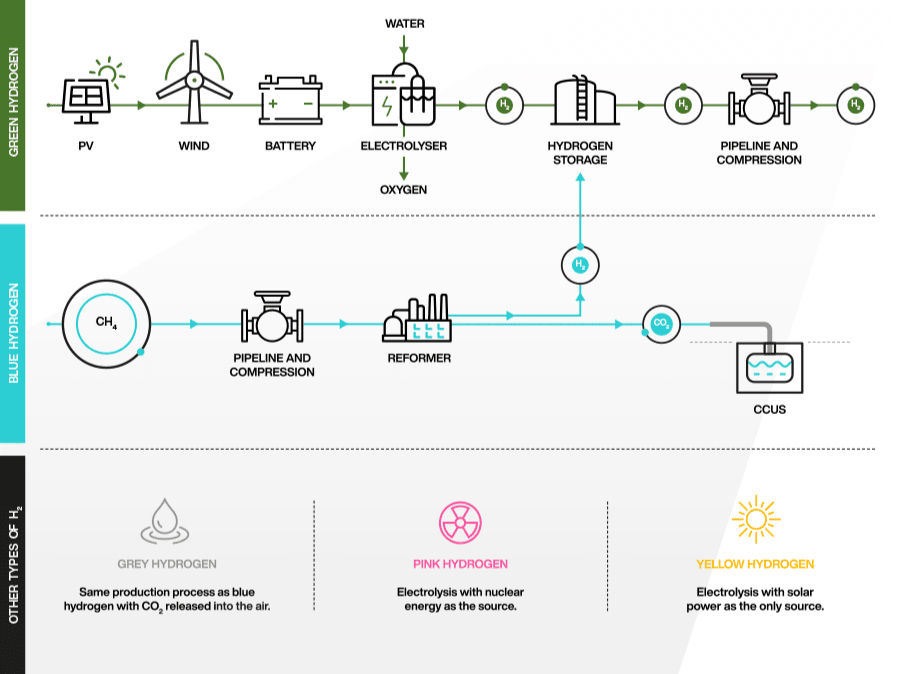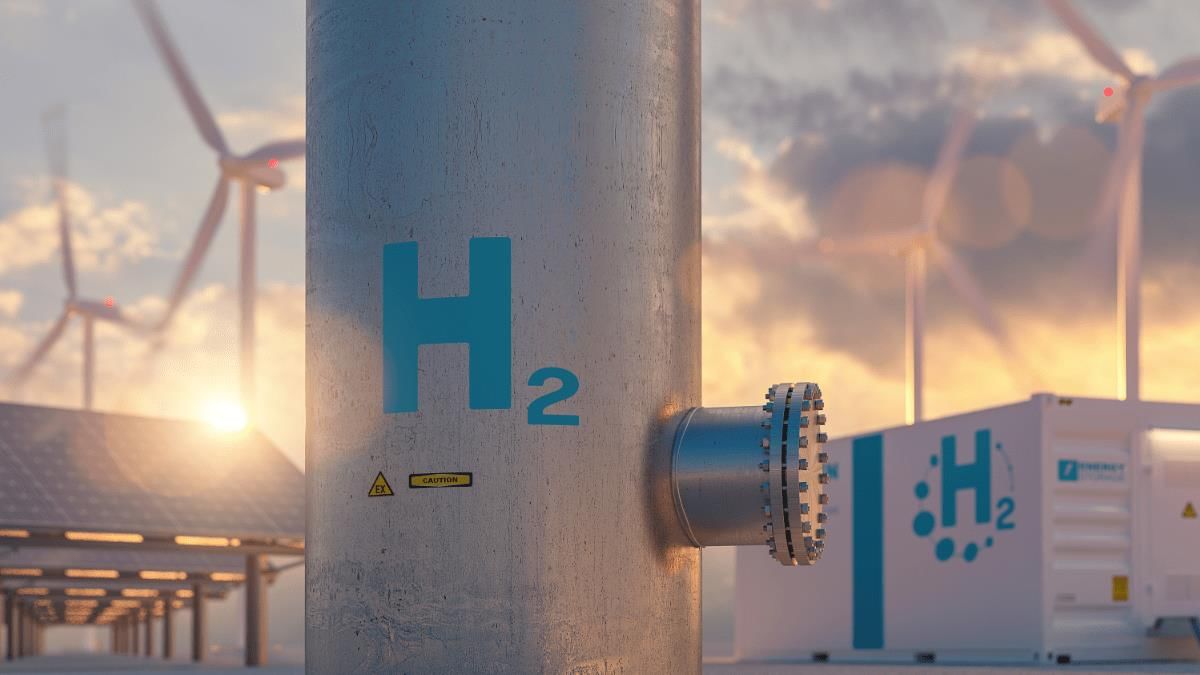UPSC Exam > UPSC Notes > PIB (Press Information Bureau) Summary > PIB Summary- 25th June, 2024
PIB Summary- 25th June, 2024 | PIB (Press Information Bureau) Summary - UPSC PDF Download
Green Hydrogen
The Ministry of New & Renewable Energy (MNRE) has boosted the annual allocation of Green Ammonia for the fertiliser sector from 550,000 to 750,000 tonnes. This increase aims to meet the rising demand and enhance support for Green Hydrogen in India.

What is Green hydrogen?
- A colourless, odourless, tasteless, non-toxic and highly combustible gaseous substance, hydrogen is the lightest, simplest and most abundant member of the family of chemical elements in the universe.
- But a colour — green — prefixed to it makes hydrogen the “fuel of the future”.
- The ‘green’ depends on how the electricity is generated to obtain the hydrogen, which does not emit greenhouse gas when burned.
- Green hydrogen is produced through electrolysis using renewable sources of energy such as solar, wind or hydel power.
- Hydrogen can be ‘grey’ and ‘blue’ too.
- Grey hydrogen is generated through fossil fuels such as coal and gas and currently accounts for 95% of the total production in South Asia.
- Blue hydrogen, too, is produced using electricity generated by burning fossil fuels but with technologies to prevent the carbon released in the process from entering the atmosphere.
Green Hydrogen Importance
Hydrogen is being used across the United States, Russia, China, France and Germany. Countries like Japan desire to become a hydrogen economy in future.
Green hydrogen can in future be used for,
- Electricity and drinking water generation, energy storage, transportation etc.
- Green hydrogen can be used to provide water to the crew members in space stations.
- Energy storage- Compressed hydrogen tanks can store the energy longer and are easier to handle than lithium-ion batteries as they are lighter.
- Transport and mobility- Hydrogen can be used in heavy transport, aviation and maritime transport.
What is the National Green Hydrogen Mission?
- The intent of the mission is to incentivise the commercial production of green hydrogen and make India a net exporter of the fuel.
- The mission has laid out a target to develop green hydrogen production capacity of at least 5 MMT (Million Metric Tonne) per annum.
- This is alongside adding renewable energy capacity of about 125 GW (gigawatt) in the country.This will entail the decarbonisation of the industrial, mobility and energy sectors; reducing dependence on imported fossil fuels and feedstock; developing indigenous manufacturing capabilities; creating employment opportunities; and developing new technologies such as efficient fuel cells.
- By 2030, the Centre hopes its investments will bring in investments worth ₹8 trillion and create over six lakh jobs. Moreover, about 50 MMT per annum of CO2 emissions are expected to be averted by 2030.
- As per its Nationally Determined Contribution (NDC) to meeting the goals of the Paris Agreement, India has committed to reduce emissions intensity of its GDP by 45% by 2030, from 2005 levels.

Advantages:
- The National Green Hydrogen Mission will make India a leading producer and supplier of Green Hydrogen in the world.
- It would result in attractive investment and business opportunities for the industry.
- Will contribute significantly to India’s efforts for decarbonization and energy independence.
- Will create opportunities for employment and economic development.
- The Mission will drive the development of the Green Hydrogen ecosystem in the country.
- The targeted production capacity will bring over ₹8 lakh crore in total investments and will result in creation of over 6 lakh clean jobs.
- The Mission will support pilot projects in other hard-to-abate sectors.
- The Mission will also support R&D projects.
Question for PIB Summary- 25th June, 2024Try yourself: What is the main source of energy used to produce green hydrogen?View Solution
The document PIB Summary- 25th June, 2024 | PIB (Press Information Bureau) Summary - UPSC is a part of the UPSC Course PIB (Press Information Bureau) Summary.
All you need of UPSC at this link: UPSC
FAQs on PIB Summary- 25th June, 2024 - PIB (Press Information Bureau) Summary - UPSC
| 1. What is green hydrogen? |  |
Ans. Green hydrogen is produced through the process of electrolysis using renewable energy sources such as wind or solar power to split water into hydrogen and oxygen.
| 2. How is green hydrogen different from grey hydrogen? |  |
Ans. Green hydrogen is produced using renewable energy sources, while grey hydrogen is produced from natural gas through a process that emits carbon dioxide.
| 3. What are the advantages of using green hydrogen as a clean energy source? |  |
Ans. Green hydrogen is a sustainable and clean energy source that can help reduce greenhouse gas emissions, improve air quality, and enhance energy security.
| 4. How is green hydrogen being used in various industries? |  |
Ans. Green hydrogen is being used in industries such as transportation, electricity generation, and manufacturing as a cleaner alternative to fossil fuels.
| 5. What are some challenges associated with the widespread adoption of green hydrogen? |  |
Ans. Some challenges include high production costs, the need for infrastructure development, and limited availability of renewable energy sources in certain regions.
Related Searches
















